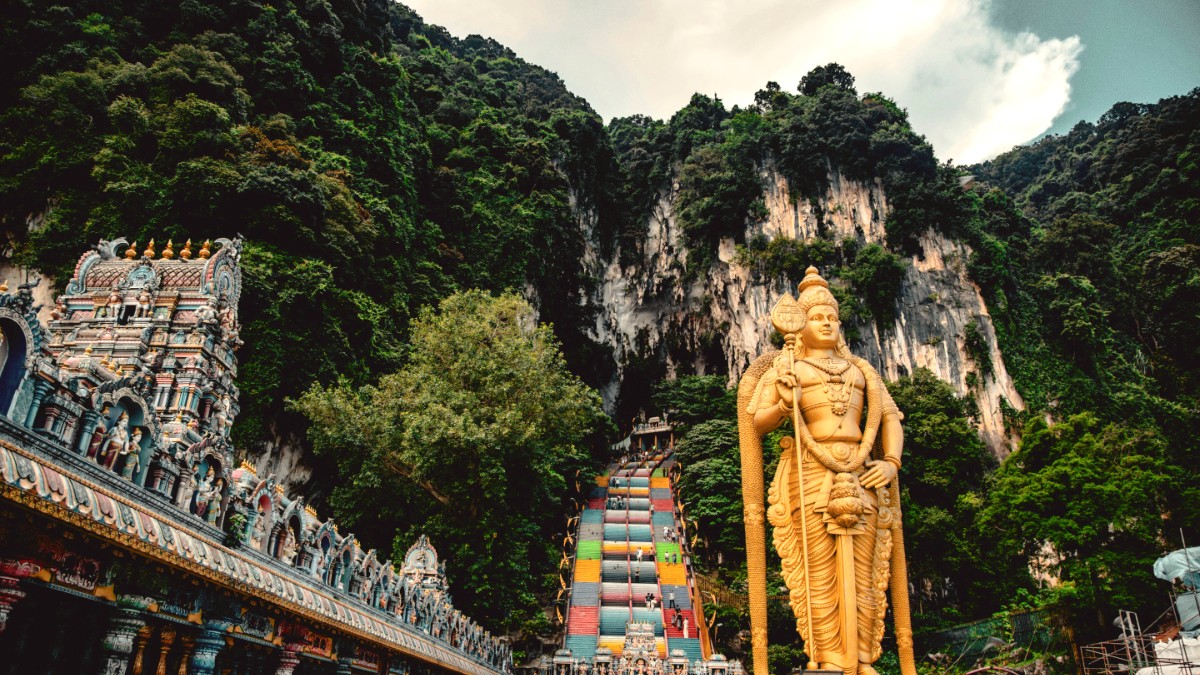
Malaysia
Purchasing a local SIM card gives the most economical way to communicate and access data. You find them at Kuala Lumpur International Airport (KLIA/KLIA2) or major shopping malls. Passport registration required. Mobile phone must be unlocked.
Free Wi-Fi is common in hotels, cafes, restaurants, and shopping malls. Public networks are sometimes less secure. A local SIM card offers consistent and secure access. Consider an ESIM from Airalo or a portable device like Solis Wi-Fi for dedicated connectivity.
Pos Malaysia outlets exist throughout the country, especially in towns and cities. They offer reliable service for international mail. Major hotels may also assist with outgoing mail.
Bahasa Malaysia is the official language. English is widely spoken in major cities and tourist areas like Batu Caves. Many signs include English. Rosetta Stone can assist with language learning before your trip.
Download the Google Translate app and its offline Malay pack before your trip. It helps you navigate language barriers seamlessly, even without internet access.
Business hours vary across different sectors. Planning ahead for holidays and specific attractions aids smooth travel.
Generally open daily from 10:00 AM to 10:00 PM.
Banks typically 9:00 AM - 5:00 PM weekdays. Government offices 8:00 AM - 5:00 PM weekdays.
Restaurant hours vary; Mamak stalls often 24/7. Major attractions like Batu Caves typically open 7:00 AM to late evening.
ATMs operate 24/7 and exist throughout urban areas and shopping malls. They locate inside banks, at convenience stores, and within shopping centers. Banks generally operate during standard business hours.
Malaysia observes many public holidays, including religious festivals. During major holidays, government offices and some businesses may close. Transportation often fills with people traveling for family gatherings. Batu Caves usually remains open during festivals but expect larger crowds.
For smooth travel, check specific opening hours and consider public holidays. Many places stay open, but crowd levels change.
Malaysia, a multicultural nation, has diverse traditions.
A handshake is common for men. For women, a nod or slight bow is often suitable. Malays may offer a 'salam' (light finger touch to heart). Always use your right hand for greetings.
Modest clothing is respectful, especially outside major tourist spots. Avoid overly revealing items. At religious sites, cover shoulders and knees. Remove shoes before entering temples or mosques.
Use your right hand or a spoon/fork for eating. Tipping is not customary; a 10% service charge and 6% government tax usually appear on bills. Sharing dishes is common at hawker centers.
Photography is generally allowed at tourist sites. Ask permission before taking photos of individuals, notably in rural or religious settings. Be discreet in places of worship.
Learning a few Malay phrases and observing local customs enriches interactions. Respect for local traditions is a welcome gesture.
Accessibility for travelers with mobility challenges is a developing area in Malaysia. Progress appears in newer infrastructure; older sites and public spaces often have limits.
Newer public transport systems (MRT, LRT lines) and modern shopping malls in Kuala Lumpur have accessibility features like lifts, ramps, and accessible restrooms. Older areas, traditional markets, and some historical sites often lack these provisions. Sidewalks can be uneven.
Batu Caves main cave (Cathedral Cave) is inaccessible due to 272 steep steps. Base areas are accessible. KLCC Park, Pavilion KL, Petronas Twin Towers ground levels/skybridge (via lifts), and KL Tower offer generally accessible viewing. MRT/LRT lines are the most accessible public transport.
Specialized services for travelers with visual or hearing impairments remain limited compared to Western countries. Major international hotels may offer some assistance or facilities. Research specific needs and contact attractions directly in advance to confirm provisions. Guide dogs may not always be universally accepted.
For detailed, up-to-date accessibility information, consult specific attraction websites, the Malaysian tourism board, or local disability organizations. Online forums for travelers with disabilities can provide valuable insights and personal experiences. Thorough planning is highly beneficial.
While some areas are accessible, it's wise to verify specific needs with venues directly. Older infrastructure may pose challenges.